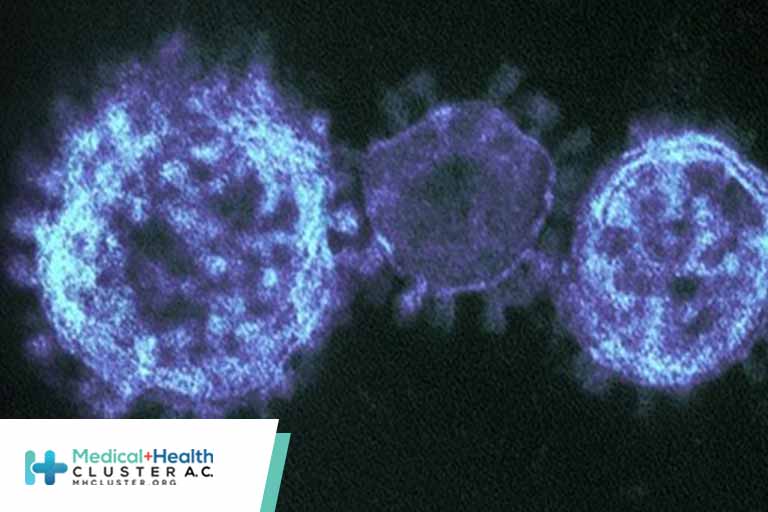En atención a la creciente preocupación sobre la confianza en...
Leer más
Five-Day Course of Oral Antiviral Appears to Stop SARS-CoV-2 in Its Tracks

A single pill of the investigational drug molnupiravir taken twice a day for 5 days eliminated SARS-CoV-2 from the nasopharynx of 49 participants.
That led Carlos del Rio, MD, distinguished professor of medicine at Emory University in Atlanta, Georgia, to suggest a future in which a drug like molnupiravir could be taken in the first few days of symptoms to prevent severe disease, similar to Tamiflu for influenza.
“I think it’s critically important,” he told Medscape Medical News of the data. Emory University was involved in the trial of molnupiravir but del Rio was not part of that team. “This drug offers the first antiviral oral drug that then could be used in an outpatient setting.”
Still, del Rio said it’s too soon to call this particular drug the breakthrough clinicians need to keep people out of the ICU.
“It has the potential to be practice-changing; it’s not practice-changing at the moment.”
Wendy Painter, MD, of Ridgeback Biotherapeutics, who presented the data at the virtual Conference on Retroviruses and Opportunistic Infections, agreed. While the data are promising, “We will need to see if people get better from actual illness” to assess the real value of the drug in clinical care.
“That’s a phase 3 objective we’ll need to prove,” she told Medscape Medical News.
Phase 2/3 efficacy and safety studies of the drug are now underway in hospitalized and nonhospitalized patients.
In a brief pre-recorded presentation of the data, Painter laid out what researchers know so far: preclinical studies suggest that molnupiravir is effective against a number of viruses, including coronaviruses and specifically SARS-CoV-2. It prevents a virus from replicating by inducing viral error catastrophe — essentially overloading the virus with replication and mutation until the virus burns itself out and can’t produce replicable copies.
In this phase 2a, randomized, double-blind control trial, researchers recruited 202 adults who were treated at an outpatient clinic with fever or other symptoms of a respiratory virus and confirmed SARS-CoV-2 infection by day 4. Participants were randomly assigned to three different groups: 200 mg of molnupiravir, 400 mg; or 800 mg. The 200 mg arm was matched one-to-one with a placebo-controlled group, and the other two groups had three participants in the active group for every one control.
Participants took the pills twice daily for 5 days, and then were followed for a total of 28 days to monitor for complications or adverse events. At days 3, 5, 7, 14, and 28, researchers also took nasopharyngeal swabs for PCR tests, to sequence the virus, and to grow cultures of SARS-CoV-2 to see if the virus that’s present is actually capable of infecting others.
Notably, the pills do not have to be refrigerated at any point in the process, alleviating the cold-chain challenges that have plagued vaccines.
“There’s an urgent need for an easily produced, transported, stored, and administered antiviral drug against SARS-CoV-2,” Painter said.
Of the 202 people recruited, 182 had swabs that could be evaluated, of which 78 showed infection at baseline. The results are based on labs of those 78 participants.
By day 3, 28% of patients in the placebo arm had SARS-CoV-2 in their nasopharynx, compared to 20.4% of patients receiving any dose of molnupiravir. But by day 5, none of the participants receiving the active drug had evidence of SARS-CoV-2 in their nasopharynx. In comparison, 24% of people in the placebo arm still had detectable virus.
Halfway through the treatment course, differences in the presence of infectious virus were already evident. By day 3 of the 5-day course, 36.4% of participants in the 200 mg group had detectable virus in the nasopharynx, compared with 21% in the 400 mg group and just 12.5% in the 800 mg group. And although the reduction in SARS-CoV-2 was noticeable in the 200 mg and the 400 mg arms, it was only statistically significant in the 800 mg arm.
In contrast, by the end of the 5 days in the placebo groups, infectious virus varied from 18.2% in the 200 mg placebo group to 30% in the 800 mg group. This points out the variability of the disease course of SARS-CoV-2.
“You just don’t know” which infections will lead to serious disease, Painter told Medscape Medical News. “And don’t you wish we did?”
Seven participants discontinued treatment, though only four experienced adverse events. Three of those discontinued the trial due to adverse events. The study is still blinded, so it’s unclear what those events were, but Painter said that they were not thought to be related to the study drug.
The bottom line, said Painter, was that people treated with molnupiravir had starkly different outcomes in lab measures during the study.
“An average of 10 days after symptom onset, 24% of placebo patients remained culture positive” for SARS-CoV-2 — meaning there wasn’t just virus in the nasopharynx, but it was capable of replicating, Painter said. “In contrast, no infectious virus could be recovered at study day 5 in any molnupiravir-treated patients.”
https://www.medscape.com/viewarticle/947061?src=soc_fb_210601_mscpedt_news_mdscp_sarscov2&faf=1#vp_1
Créditos: Comité científico Covid




